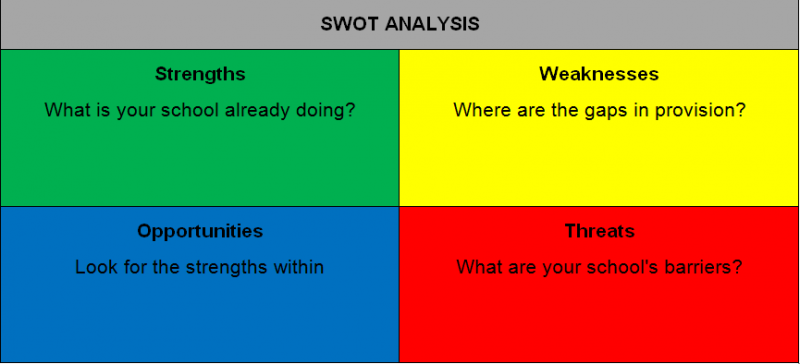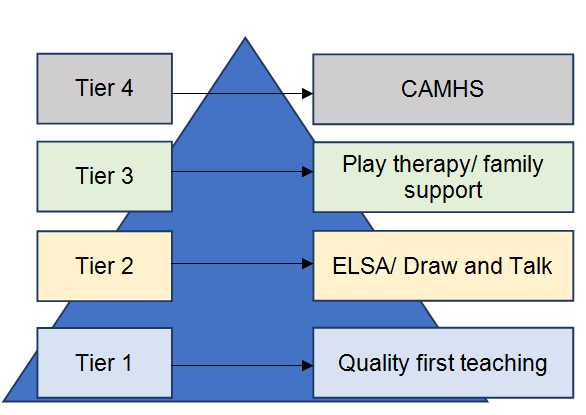- Latest NewsUp-to-date articles giving you information on best practice and policy changes.
- Skills AuditsEvaluate your skills and knowledge, identify gaps and determine training needs.
Quality interventions for SEMH: what resources are available for schools?
Pupil mental health is high on the agenda for schools. Do we know enough about the resources available to implement quality SEMH interventions?
We currently hold a space within education that places the demand on schools to fill the gaps in provision for pupil mental health and wellbeing.
With dwindling school budgets and universal service cuts, along with the demand to show positive growth in pupil attainment, it is not surprising that schools feel overwhelmed with the growing need for pupil social, emotional and mental health (SEMH) support in education.
What can we do as educators?
By equipping schools with knowledge and high-quality resources for SEMH, we stand a chance in meeting the demand to show that pupils are making progress and flourishing within education.
If provisions can offer regular mental health training to teaching staff, this can pave the way for better outcomes for our most vulnerable pupils.
Be proactive, not reactive
Supporting pupils with SEMH needs can be a real challenge.
Teachers are not trained medical health practitioners, and access to the kinds of support some pupils require are limited by overwhelming demand and funding cuts. This shortfall of support leaves educators with the task of bridging the gap of pupils waiting for medically qualified staff to prescribe mental health support.
It is therefore vital that schools offer a responsive approach with early intervention that is proactive rather than reactive.
Our approaches have helped remove the stigma around talking about mental health
Highlight what you are already doing well
Your school may already offer a supportive selection of SEMH interventions.
By completing a SWOT analysis, this will highlight gaps in provision and can be a starting point in embedding new approaches to aid pupil wellbeing.

Underpinning all the successful programmes in this article will provide a positive approach that can be adopted by teachers and school leaders to pupils with SEMH.
Screening and measuring pupil wellbeing is key
Knowing your pupils is the starting point to establishing purposeful provision for SEMH. There are many measuring tools to use.
Firstly, look at your available budgets then think about the questions you want answered. Screening processes will highlight the focus areas of pupil needs.
At Lessness Heath, we currently use the SEPQ (social, emotional, profile questionnaires) process, along with SDQ (strength and difficulty questionnaires) and the Boxall Profile.
How it works
SEPQs
SEPQs are completed by the pupil. These provide professionals with a sociogram to determine peer relationships within the class setting.
SEPQs give a rounded view of the pupil, looking both at their own feelings around school and home life and also where they sit socially within their peer setting.
With the SEPQ data, we create a report that is rag-rated to highlight the severity of each individual pupil's needs. Teaching staff are able to create unique support packages for individual needs.
SDQs
SDQs are a simple, evidence-based tool to help schools consider the full range of a child’s behaviour, and balance protective factors and strengths with weaknesses and risks. They are completed by the pupil, parent and child (if over the age of 11).
SDQs give a rounded view of how the child feels and how they are presenting both at home and in school. These are completed both pre and post interventions, therefore can assist in measuring impact.
The Boxall Profile
The Boxall Profile provides a framework for the precise assessment of children who have social, emotional and behavioural difficulties (SEBD) and are failing at school.
It helps teachers to plan focused interventions for those children whose behaviour seems to make no sense. The profile provides the teacher with insights and suggests points of entry into the child's world. It makes people think about what lies behind the behaviour.
Pyramid of needs
Boingboing, a mental health charity specialising in developing resilience, and YoungMinds, a youth mental health charity, have collaborated to create a tool for recording individual pupils' wellbeing in a way which also gives an overview of whole-school wellbeing.
Available measuring tools
What good quality intervention looks like
There is a range of SEMH interventions that staff can put in place to make a real difference to the lives of vulnerable pupils, and many of them require little funding (if any).
At Lessness Heath, a wide range of SEMH support is offered, based on a four-tiered approach to intervention.

Tier 1 encompasses quality first teaching that takes place within the class room.
Tier 2 includes in school referrals for pupils to have ELSA (emotional literacy support) or Draw and Talk interventions with trained TAs.
Tier 3 involves pupils being referred to have therapeutic support with a trained play specialist, this could also include deeper family support work.
Tier 4 if all the above has not been successful in meeting the pupil's need, then a quality referral to CAMHS would be made, including all the evidence of previous SEMH interventions adds weight to the referral.
In class quality first teaching approaches that support emotional health and build relationships
- Meet and greet, check in/check out
- Time to talk: secured time for pupils to explore feelings
- Learning mentors
- Sensory boxes within the classroom, to help pupils self-regulate
- One-to-one support
To support building relationships with peers
- Circle of friends intervention
- Social skills group
- Playground leaders
- Pupil wellbeing ambassadors
- Regularly collecting pupil voice
Protected time for children and young people to work with experienced adults
- Emotional literacy support sssistant (ELSA)
- School-based counsellor
- Draw and Talk support assistants
- In-school bereavement support
- Registered therapists – art, drama, music
- Specific bereavement support – Bereavement UK or Winston Wishes.
- Specialist lunch time provisions for vulnerable pupils
How purposeful intervention has changed our school community
- We have noticed an increase in the identification of vulnerable families via our screening processes.
- Pupils have a deeper understanding of emotional intelligence and how to access help when needed.
- Teaching staff have a richer understanding of the pupils in their classrooms and are contributing to positive approaches in SEMH provision.
- Home-school links have improved.
- We have had three EHCPs accepted on SEMH needs.
- All our referrals to CAMHs have been accepted.
- We have seen a change in culture throughout the school environment.
- Teaching staff are using a wide range of interventions to support pupil needs.
- Our approaches have helped remove the stigma around talking about mental health.
Useful Websites
Last Updated:
29 Apr 2021


